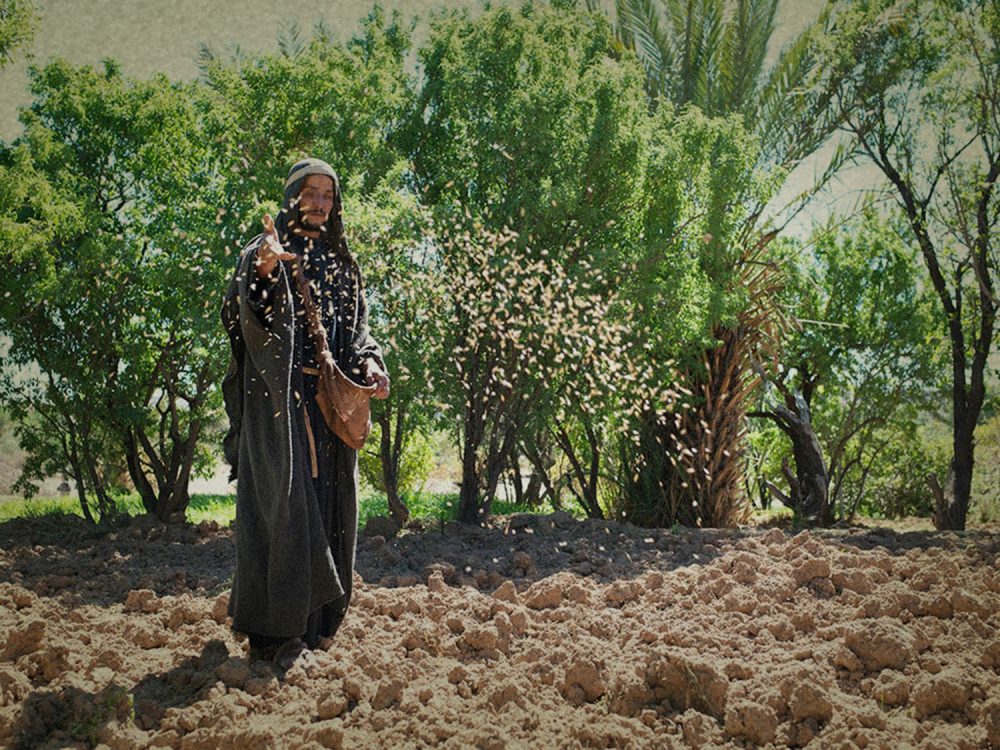Fr Paolo Consonni, MCCJ
O’Clarim 15 Sun OT Year A
“Listen! A sower went out to sow. And as he sowed, some seeds fell on the path… other seeds fell on rocky ground… other seeds fell among thorns… other seeds fell on good soil and brought forth grain, some a hundredfold, some sixty, some thirty.” (Mt 13:3-9)
The Parable of the Sower that will be proclaimed this Sunday (Mt 13:1-23) connects agriculture and spirituality. Living in a mostly rural society, Jesus used images that could be easily understood by His listeners. But the symbolism of this parable is truly universal and relevant even in our technological times.
I use an example to illustrate my point. When the Roman Empire collapsed (5th century AD), Europe entered a period of anarchy and war. The so-called “barbarian tribes” from the northeast easily invaded through the gaps of the Empire’s weak defenses, destroying and disrupting social, economic, and cultural life. Prolonged unsustainable farming practices impoverished the land, much of which had to be left abandoned and uncultivated. The enormous cultural heritage of the Greek and Latin civilization was on the verge of being permanently lost.
It was during this low point that monastic life began to flourish, especially the Benedictine Order. Contrary to popular belief, monks were not escaping a decadent and chaotic world only for the sake of their private spiritual well-being. On the contrary, following the principle of ora et labora (prayer and work), they tried to make good use of the spiritual and material resources at their disposal as well as for the good of the people around them. By doing so, they played a critical role in the survival of Western civilization.
In fact, these monastic communities were not only spiritual centers, but also powerhouses of intellectual, agricultural, technical, educational, and charitable activities.
By developing new agricultural methods, the monks cleared large tracts of land, making them fertile and accessible, and they passed their expertise on to the wider population, who were inspired by the great respect and honor the monks showed toward manual labor. Crop rotation, irrigation, breweries, cheese production, reforestation, organic farming, and herbal medicine, among many others, were all technologies developed in those monasteries and are still in use today.
Pope Benedict XVI in his Encyclical Spe salvi used the exemplary life of those monks to explain how the efforts we put into deepening our personal spiritual life, which is clearly directed beyond the present world, has also the potential to transform our living environment.
The “tilling of the soil” is a good metaphor to illustrate the fruitful connection between spirituality and work: “A wild plot of forest land is rendered fertile [through manual work] and in the process, the trees of pride are felled, whatever weeds may be growing inside souls are pulled up, and the ground is thereby prepared so that bread for body and soul can flourish. Are we not perhaps seeing once again, in the light of current history, that no positive world order can prosper where souls are overgrown?” (Spe salvi 15)
The Parable of the Sower reminds us that , as we spend much of our energies and resources to become more productive and improve our standards of living, at the same time we need to put efforts into “tilling the soil of our soul” so that they might become more receptive to God’s Word and produce better fruits. Those fruits are the signs that the Kingdom of God is present and growing in and around us. This “spiritual tilling” starts with prayer (especially the Lectio Divina), but must necessarily involve the opening of our thoughts and feelings, of our character and talents, of our desires and decisions to God’s transformative action. Only this personal inner work can be the basis for a wider social change.
The example of the monks teaches us that spirituality is not an optional activity that is added to the more useful “material” daily tasks, but it is what gives meaning and motivation to our work and makes it even more effective. If we “till our hearts” and increase the amount of “good soil” in which God’s Word can take root and germinate, then we will see the fruits of our spiritual efforts in our families, professions, relationships and, hopefully, in our societies too.
Jesus is a tireless and generous Sower. He never stops sowing His mercy and love in the lives of every person, even if our hearts are always “works in progress” and need constant tilling. Stones and thorns, in the form of unchecked emotions, distractions, or self-centered attitudes, are to be dealt with almost on a daily basis. But Jesus believes in our capability to patiently work so that we might give the Gospel a place to put roots, grow and yield fruit at personal and community levels. And in the process, like the monks in those times, to make the Earth more habitable too!


 Follow
Follow


